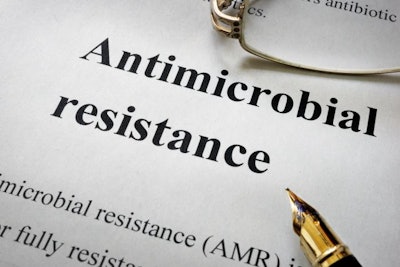
Progress in the global battle against antimicrobial resistance (AMR) has received a boost as the Dutch government made a pledge to start a new international multi-agency trust fund to tackle the issue.
At an international meeting last week, the government of the host country, The Netherlands, offered US$5 million as an initial contribution to the newly launched AMR Multi-Partner Trust Fund.
Set up jointly by a tripartite of United Nations agencies — the Food and Agriculture Organization (FAO), World Organisation for Animal Health (OIE) and the World Health Organization (WHO) — the fund has made an initial appeal for US$70 million, according to an FAO press release.
The aim of the AMR Trust Fund over the next five years is to support countries to scale up the efforts to tackle the immediate threat of AMR. This could be used to help cover the cost of technical support to countries drawing up national plans to tackle AMR, or the scale up of local actions.
Describing AMR as “arguably the most complex threat to global health,” FAO reports that drug-resistant microorganisms are already responsible for an estimated 700,000 human deaths each year, and this could rise to 10 million annually if no action is taken.
“Inaction, due to policy or implementation inadequacies, threatens to make common infections more difficult to treat and lifesaving medical procedures and treatments riskier to perform,” warns the FAO. “Inaction could also raise food insecurity and rural poverty, when animal illnesses can no longer be effectively treated using veterinary medicines.”
The UN Multi-Partner Trust Fund Office has been set up to act as an independent trustee for the Fund, providing clear attribution and transparency on sources of finance.
The setting up of the Trust Fund follows recent recommendations published to improve AMR monitoring in the European Union (EU).
This month, the European Food Safety Authority (EFSA) reported on the potential of whole genome sequencing to help in the battle to overcome the impacts of AMR. The technique can be used to improve the monitoring of AMR in bacteria by allowing the identification of resistance genes, providing results more quickly than the current process of testing the bacteria with different antibiotics. The method may be particularly useful for foodborne pathogens in seafood, for which there is relatively little information.
















